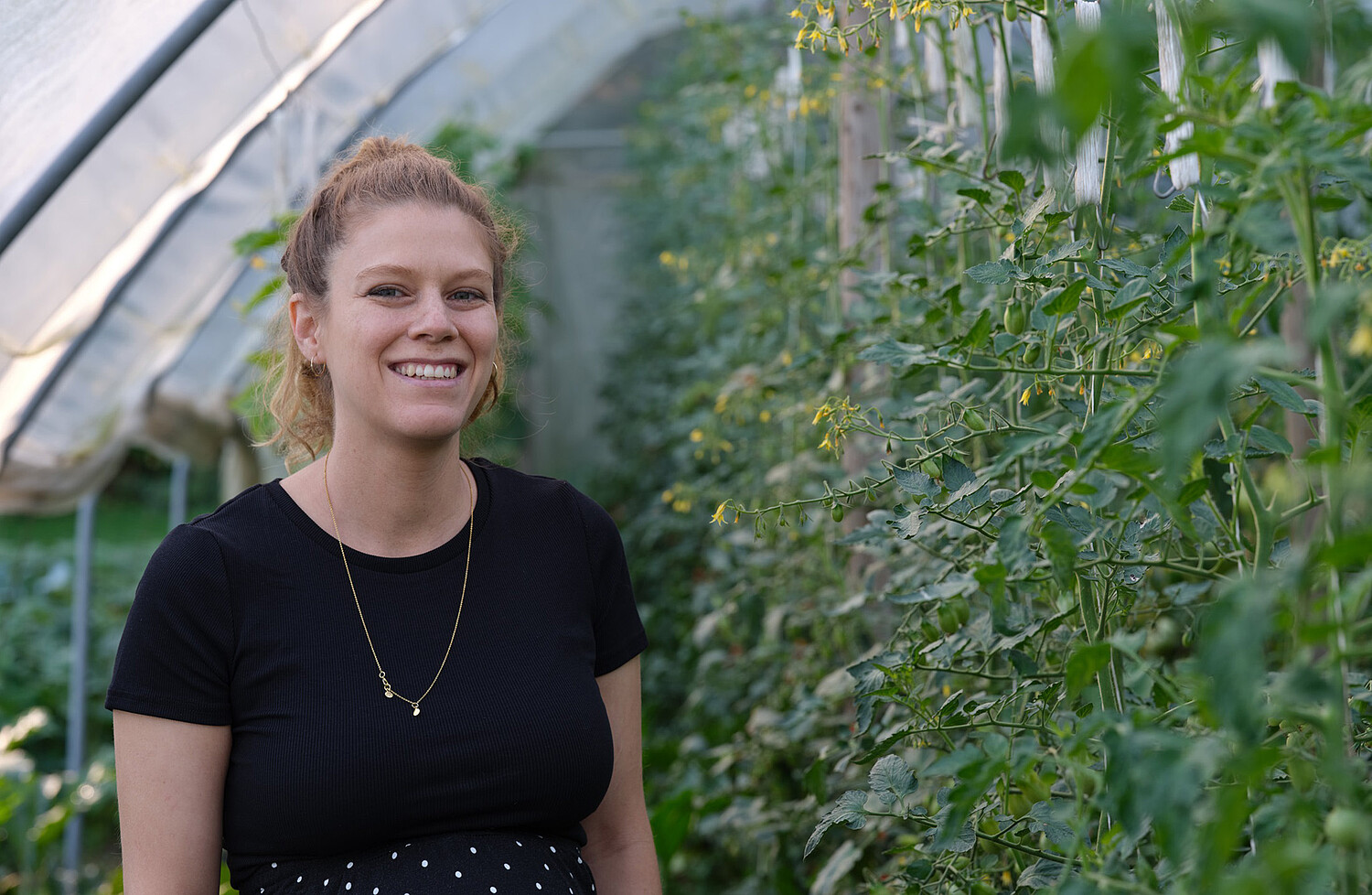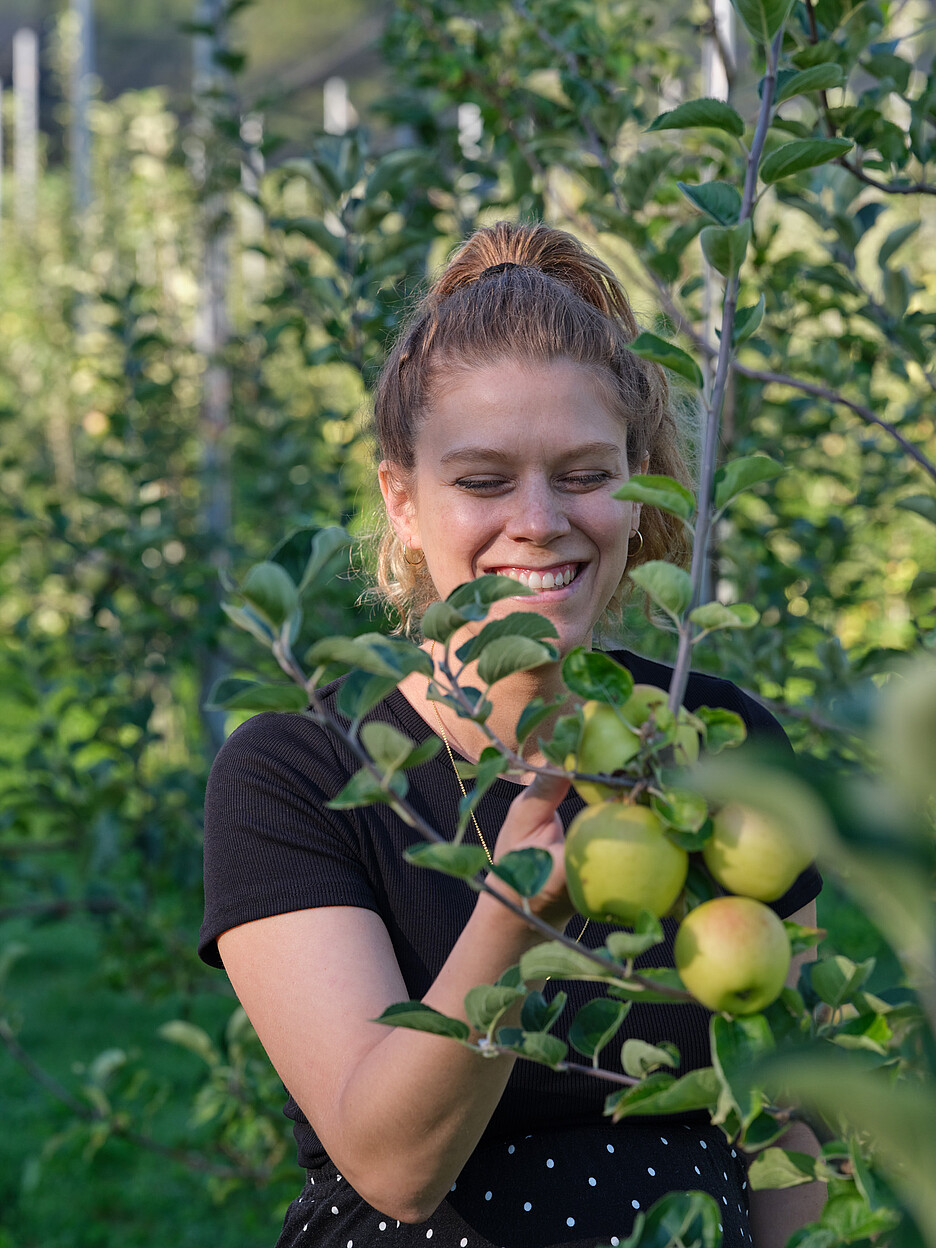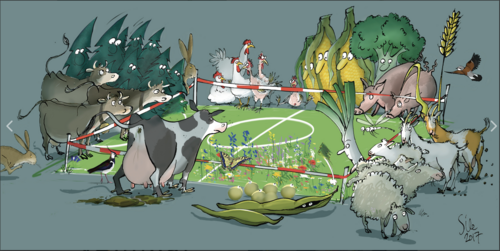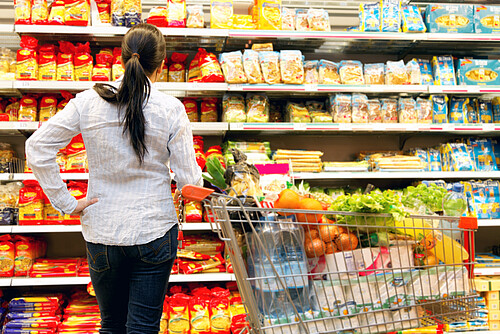
Can humanity be fed on a vegan diet?
In her Master's thesis, Patricia Krayer investigated what a vegan world might look like in the future. The results not only came as a surprise to her, but also attracted national attention.
Is it possible that humanity can be fed in the future without placing an excessive strain on the environment and if so, how? Would a completely vegan world without animal husbandry be feasible? These questions have been on Patricia Krayer’s mind for quite some time. And it was for this reason that the graduate who holds a MSc in Applied Computational Life Sciences decided to take the bull by the horns and try to answer them herself with her Master’s thesis.
Consequences for food security and the environment
The 35-year-old investigated how a farming industry with a reduced number of livestock or even no animals at all would affect food security. She also wanted to know how the environmental impact of the agricultural sector would change as a result. To put it more simply: Would farming without animals place less strain on the environment and would it still be possible to feed the whole of humanity? “We cannot exist without food, yet at the same time food production is placing a strain on our environment, another basis of our existence,” says Krayer. It is this conflict that interests her, as it affects our everyday life.
“Feeding the world’s entire population without animals and without expanding agricultural land would only be possible with conventional agricultural methods.”
In order to place less strain on the environment, animal production could be reduced, as this causes greater environmental damage than the production of plant-based products. Yet the Master’s graduate sees a further conflict here: In the current agricultural system, crop and livestock production are highly intertwined, with this being especially true in organic farming. “The production of animal-based foods in most cases has a higher environmental impact than the production of plant-based foods. At the same time, however, animal fertilisers are an important factor in organic farming,” says Krayer. She found almost no studies that had tackled this issue and used her Master's thesis to address it in depth by means of modelling.
Modelling of a fully vegan world in 2050
Using an existing model of the global food system (SOLm V6), Krayer got down to work at the School of Life Sciences and Facility Management in Wädenswil to analyse how a fully vegan world in 2050 would impact both nutrition and the environment. The Master’s graduate further developed the model by applying digital and data-based methods and examined six vegan farming scenarios with different model assumptions. These included three organic-vegan and three conventional-vegan production systems.

For each of the six scenarios, the model tracked the nutrient flows through the entire food system, from input to output. For example, it was investigated how much water, fertiliser and energy would be needed, which emissions would be produced and what amount of nutrients would ultimately be contained in the produced food.
Without animals, but only with conventional agriculture
In performing her work, she also investigated whether organic farming would be compatible with vegan farming. The result surprised Krayer: “If you wanted to feed the entire global population without expanding the amount of agricultural land being used, it would be possible to do so without animals, but only with conventional agricultural methods.” In contrast to the conventional-vegan scenarios, the organic-vegan scenarios produced inadequate amounts of calories, proteins and fats. As such, organic farming would only be compatible to a certain extent with a completely vegan farming sector.
“Organic farming is in fact dependent on animal production to a very high degree.”
“Organic farming is in fact dependent on animal production to a very high degree,” says Krayer, as animal fertilisers are an essential source of nutrients under this system. Apart from the smaller yield, which is usually the case in organic farming, the Master’s graduate sees a further reason why organic farming fares worse than conventional farming. “In the case of organic farming, there always has to be sufficient ‘unproductive’ grassland for nitrogen fixation.”
Farmers need the so-called artificial meadows in order to maintain soil quality, to take preventive action against weeds and to fix nitrogen, which is essential as a fertiliser. In a vegan world, however, these artificial meadows cannot be used directly for food production, as the grass growth cannot be used for fodder. “We also investigated to what extent organic and vegan farming are compatible,” says Krayer. We found that humanity could be fed with an 80-percent vegan world in combination with an approximately 25-percent organic world.

However, the results also show that a fully vegan world would not necessarily be more environmentally friendly. “In a vegan scenario which comprises a high proportion of vegetables, water consumption, for example, was much higher than in all other scenarios,” explains Krayer. “While this scenario is a far cry from today’s production patterns, we need to be aware that such effects can also arise.” She is convinced that the concrete implementation of such systems will play a major role and that the ideal agricultural system does not have to be either fully organic or fully vegan. Instead, it will be based on an intelligent combination of both approaches.
Research results attract great attention
The new findings generated by the Master’s thesis not only led to an adaptation of the SOLm model, but also several invitations to renowned events. For example, Krayer was given the opportunity to present her results to the Swiss Association of Agronomists and Food Scientists (SVIAL).
Krayer now works as an associate consultant at Trivadis, a company belonging to Accenture, and will complete her trainee year at the end of September. Krayer has been able to gather a great deal of new experience at the IT service provider, which supports companies in making intelligent use of data and new technologies. “From a professional perspective, I have been able to learn a lot about data engineering, data warehousing and data analytics. Or, in other words, about how to deal with, manage and transform data and generate new insights from it.” She says that this is very exciting work, not least because it also provides her with the opportunity to take a look behind the scenes of various companies.
And what will happen with the findings from her Master’s thesis? “My supervisors and I are aiming to publish a paper so that the results can reach an even greater audience across the scientific world.”



0 Comments
Be the First to Comment!